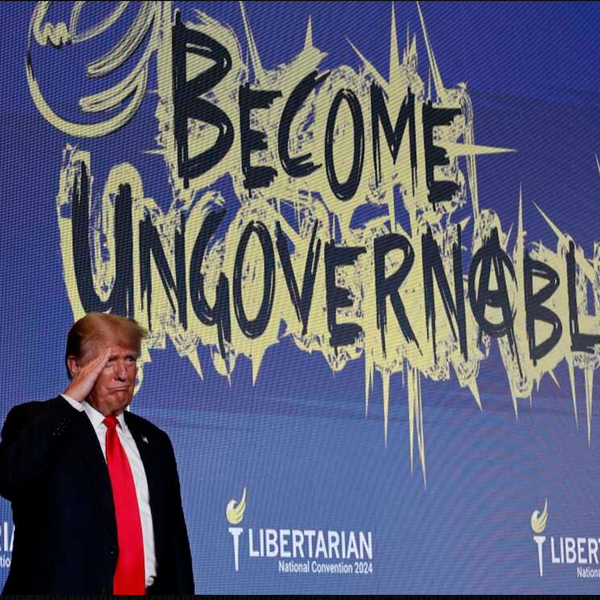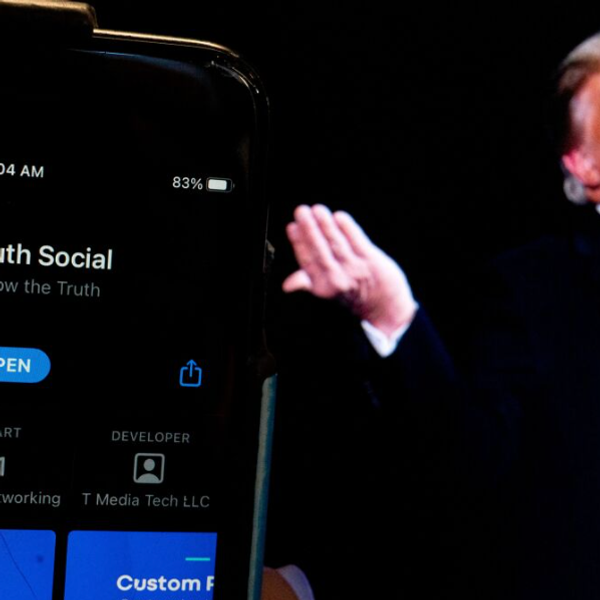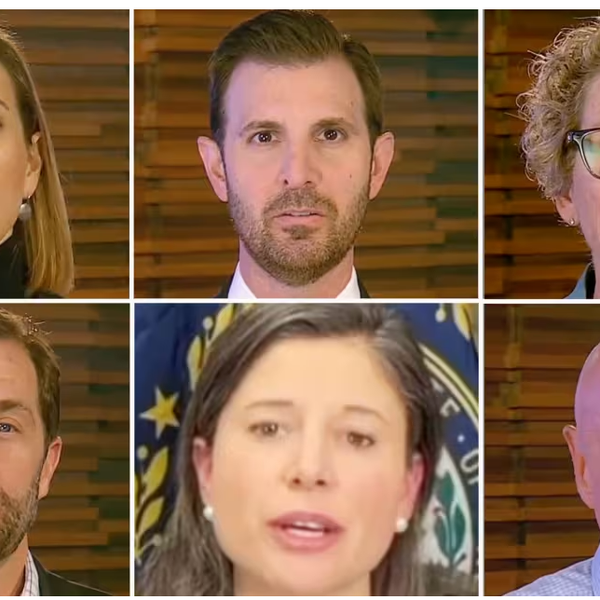
Reprinted with permission from AlterNet.
When will President Trump stop playing games with Obamacare?
By Wednesday morning, less than a day after the Senate committee overseeing health policy announced a bipartisan bill to fix near-term fiscal issues without undermining consumer protections, Trump was backtracking on his Tuesday comment that it was a “short-term solution.”
“I am supportive of [Tennessee senator and committee chairman] Lamar [Alexander] as a person & also of the process, but I can never support bailing out ins co’s [insurance companies] who have made a fortune w/ O’Care,” Trump tweeted Wednesday.
That Trump tweet prompted Alexander to reply, “I will work with the president to see if we can make it even stronger.”
Only a day before, Alexander told a health care forum, “The president engineered the bipartisan agreement by calling me and asking me to work with Senator [Patty] Murray (D-WA) to do it. I’ve talked with him three times in the last 10 days about it.”
What’s next is anybody’s guess. On Wednesday, House Speaker Paul Ryan said he opposed the Senate bill that, among other things, restored $7 billion in Obamacare subsidies for 7 million low-income policyholders—which Trump last week said he would no longer pay. That decree created a needless crisis, prompting insurers to say this week that they would increase individual Obamacare premiums by an average of 20 percent in 2018, and raise rates on other policies.
If this sounds confusing, it is. The status quo in Washington under Trump is anything but normal lawmaking. Instead of a process where opposing sides bicker, bargain, accept the result, and move on, Trump has introduced a deliberately chaotic dynamic. Millions of lives are toyed with. Needed programs are held hostage and threatened. And every new day finds Trump saying something that contradicts what he said—or agreed to—only days before.
The highest-profile example is the fate of the Obamacare subsidies and Trump’s similar refusal to fund enrollment drives for people to get coverage for 2018—which the Senate legislation also would reverse.
This dynamic could also be seen in Trump’s handling of the DACA (Deferred Action for Childhood Arrivals) program for 800,000 visa-less children of immigrants—the Dreamers. Trump said he would keep DACA and boasted of a deal with the Democrats. But then he changed his terms, adding items no Democrat would accept, like building a Mexico border wall.
Another example is his silence on another big government-created health care crisis now unfolding, the failure of Congress to fund the Children’s Health Insurance Program, which serves 9 million poor children and their families across America.
“He is gathering hostages—the health of kids, a functioning insurance market, the status of Dreamers illegally brought to the U.S. as children by their undocumented parents,” wrote Andy Slavitt in USAToday. (Slavitt oversaw the Affordable Care Act, Medicare and Medicaid for President Obama from 2015 to 2017.) “Trump’s plan is to use these hostages to get Democrats to agree to have taxpayers pay for his border wall and other demands to please his base.”
It’s important to understand what Trump is doing—he’s creating crises that would not exist were it not for disruptive tactics that force others to clean up his mess, such as the Senate Health Education Labor and Pensions Committee having to put into legislation remedies to counter Trump’s vindictive abuse of power.
The bipartisan bill announced Tuesday by HELP Chairman Alexander and vice-chair Murray would do what Republicans have sought—give states flexibility to run federal healthcare programs, rather than being forced into a do-everything-you’re-told approach from Washington. But the HELP committee also had to find a way around Trump’s intransigence over spending congressionally appropriated funds.
Moreover, the committee also sidelined, at least temporarily, a stunning new line of attack on Trump and the GOP—that the announced 2018 premium hikes were akin to a major tax increase.
Trump’s ‘Tax Increase’ Postponed
“The higher [Obamacare] rates—ranging from 9 percent to 27 percent more than they proposed in June—depending on the insurer, are essentially a tax that President Trump is imposing on consumers,” Washington state Insurance Commissioner Mike Kreidler said, this week before the HELP Committee bill was announced. “Make no mistake: the president had a choice and he chose to make health care cost significantly more for people who need help. The fallout from this lands squarely on his shoulders.”
None of this chaos was remotely necessary.
As health policy experts have said, Obamacare is not failing, contrary to Trump’s assertions. Insurers selling individual policies were profitable as recently as this spring, the Henry J. Kaiser Family Foundation has reported. But after Trump’s subsidy-ending decree, insurers in almost every state were facing multi-millions in losses in 2017, Avalere, an independent consulting firm, said Tuesday (before the Senate bipartisan legislation was announced).
Trump’s advisers said this week his proposed tax cuts would raise annual wages by several thousand dollars—a figure that has been disputed as a long-term projection and over-ambitious. But Trump ending Obamacare subsidies would cause health care premiums to immediately jump by thousands of dollars in 2018—and still could, if Congress doesn’t act on the Senate HELP proposal.
One can only wonder if Trump’s tax cut-obsessed colleagues read the writing on the walls, especially in states that voted for Trump. Earlier this week, local newspapers in the final presidential swing states were telling readers Trump was about to make multi-thousands of households feel significant fiscal pain.
“Pennsylvania insurers offering Obamacare plans will need to raise premiums an average 30.6 percent in 2018, nearly four times the increase that had been anticipated before President Donald Trump scrapped government subsidies five days ago,” the Pittsburgh Post-Gazette reported. “Earlier this year, the Pennsylvania Insurance Department had projected an average 7.6 percent rate hike for individual health insurance plans purchased… in this state.”
Pennsylvania was not the only swing state feeling the sting.
“The sticker price for individual health plans sold on Michigan’s Affordable Care Act exchange will jump 16.7% next year under new rates announced Monday by state officials,” the Detroit Free Press said, noting 393,322 Michiganders “currently buy individual health insurance on or off the government-run exchange.”
In Wisconsin, Obamacare premiums were projected to go up 36 percent in 2018. In Ohio, some insurers filed papers with regulators seeking increases as much as 48 percent.
Needless to say, Sens. Alexander and Murray’s legislation has to be passed by the Senate and House and signed into law by Trump. It is far from a done deal. But look at what never should have been in their bipartisan “solution” in the first place—provisions to counter Trump’s intentional traumatizing the health security of millions.
This toxic and dysfunctional dynamic reflects the new normal in Trump’s Washington. Nothing about it bodes well for the legislative process or the ability of government to solve problems lessening the real-life stresses and challenges people face.
Steven Rosenfeld covers national political issues for AlterNet, including America’s democracy and voting rights. He is the author of several books on elections and the co-author of Who Controls Our Schools: How Billionaire-Sponsored Privatization Is Destroying Democracy and the Charter School Industry (AlterNet eBook, 2016).








